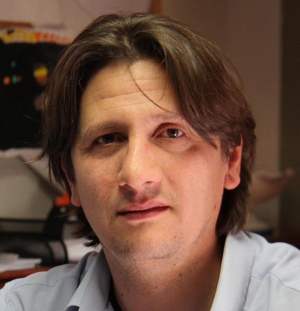 |
Neanderthal Man's diet? Rhino or mouflon meat in Central Europe, mushrooms, moss and pine nuts in Spain. The original menu, its regional variations and certain diseases of our distant ancestors were obtained from the DNA analysis of the dental tartar, which were the subject of an international research, published in “Nature”. The work, led by researchers Laura S. Weyrich and Alan Cooper of the University of Adelaide (Australia), saw the contribution of David Caramelli (pictured), from the Department of Biology of the University of Florence ("Neanderthal behavior, diet and disease inferred from ancient DNA in dental calculus "doi: 10.1038 / nature21674). DNA sequencing of dental deposits from five European Neanderthal specimens revealed marked regional differences in nutrition: a Neanderthal man from the Spy Cave in Belgium had a meat-based diet and ate woolly rhinoceros and mouflon, characteristic of a steppe environment. Conversely an individual from El Sidrón in Spain fed on pine nuts, moss and mushrooms, derived from the forest.The study also provides information about the microbiome (the so-called bacterial flora) of prehistoric men, their health and diseases. An analysis of the Spanish Neanderthal shows that our ancestor had a healed dental abscess, revealed by the bone conformation. In the DNA of prehistoric tartar mold sequences have been found. Such molds probably grew out of herbaceous material, capable of producing Penicillium, and others are attributable to poplar, which contains acetylsalicylic acid, a natural analgesic. The study of the sample from El Sidrón allowed the international research team - which for Italy, in addition to the University of Florence, also included the Italian Institute for Africa and the East - to otain sequences of a bacterium (Enterocytozoon bieneusi), which causes acute diarrhea in humans were obtained. In addition, scientists have reconstructed the nearly complete genome of an oral bacterium, the Methanobrevibacter commensali. This, with its 48 thousand years of age, can be considered the oldest oral microbial genome ever discovered. "Cutting-edge research is treading innovative paths for the exploitation of ancient artifacts, inferring valuable data even from a few traces of an element," explains David Caramelli. "Suffice it to say that until recently, the tartar was even removed from dental anthropological collections." |
ITA | ENG


